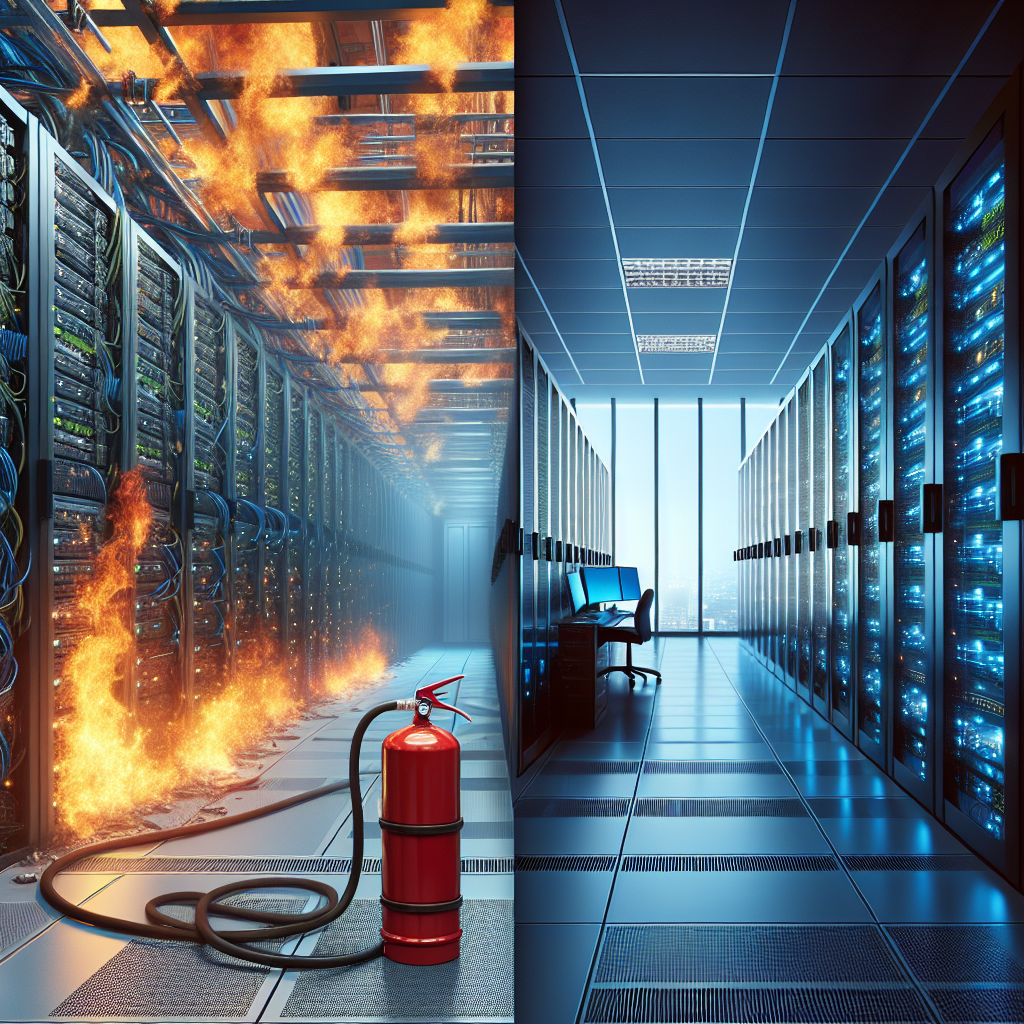Data centers are the lifeline of many businesses today, hosting critical applications and storing vast amounts of data. With the increasing reliance on technology, it is crucial for data centers to have robust disaster recovery plans in place to ensure business continuity in the event of a catastrophe. One key component of any disaster recovery plan is a reliable fire suppression system.
Fires can be devastating for data centers, causing not only damage to equipment and infrastructure but also potentially leading to data loss and downtime. Fire suppression systems are designed to detect and extinguish fires quickly, minimizing the impact on the data center and allowing for a faster recovery process.
There are several types of fire suppression systems that are commonly used in data centers, including:
1. Water-based systems: These systems use water to extinguish fires and are typically installed in areas where water can be safely used without causing damage to equipment. Water-based systems are effective at extinguishing fires quickly but may not be suitable for all types of fires.
2. Gas-based systems: Gas-based systems use agents such as FM-200 or Novec 1230 to suppress fires by removing oxygen from the area. These systems are ideal for data centers as they are clean agents that do not leave behind residue that could damage equipment.
3. Dry chemical systems: Dry chemical systems use powder or foam to extinguish fires by smothering the flames. These systems are effective at suppressing fires quickly but may leave behind residue that can be difficult to clean up.
Regardless of the type of fire suppression system used, it is crucial for data centers to regularly test and maintain their systems to ensure they are functioning properly in the event of a fire. Regular maintenance and testing can help identify any issues with the system and ensure it will work effectively when needed.
In conclusion, fire suppression systems play a vital role in data center disaster recovery plans by helping to prevent and extinguish fires quickly, minimizing damage and downtime. Data center operators should invest in reliable fire suppression systems and regularly test and maintain them to ensure they are prepared for any potential disasters. By incorporating fire suppression systems into their disaster recovery plans, data centers can better protect their critical infrastructure and ensure business continuity in the face of adversity.


Leave a Reply